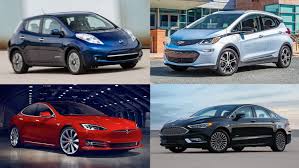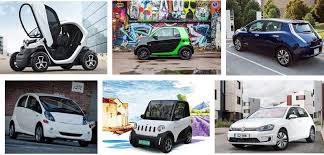connect to the outlet again
Oil and gas companies are currently investing heavily in electric vehicle charging companies
 For decades, oil and gas companies and utilities have refused to accept electric vehicles as a given. Now oil and energy giants are becoming part of the “new fuels”industry.
For decades, oil and gas companies and utilities have refused to accept electric vehicles as a given. Now oil and energy giants are becoming part of the “new fuels”industry.
According to forecasts, more than 350 new models of electric vehicles will appear by 2025. Global demand for gasoline will peak around 2021, thanks to improved fuel efficiency. Wood Mackenzie predicts that infrastructure investment in the US will exceed $ 18 billion per year in equipment, installation, operation and services by 2030. China is expected to have three times more energy demand from electric vehicles by then. Continue reading
Electric cars: myths and reality from Volkswagen
 1.”No one can afford an electric car!»
1.”No one can afford an electric car!»
Electric cars are becoming more attractive and affordable. For example, the cost of batteries has fallen by about 80% over the past ten years. Volkswagen ID.3 is an electric car that costs exactly the same as the equivalent Golf TDI. In addition, buyers can apply for a government grant, and operating costs for an electric vehicle are lower. This is due to the fact that electricity costs less than gasoline and diesel, a lower tax is charged, and the maintenance and maintenance costs are only about a third of the costs of cars with conventional transmissions. When you look at the total cost of ownership, electric cars are a bargain for a large number of people. Continue reading
What is the difference between electric vehicles and hybrids or plug-in hybrids
 Electric vehicles that you can buy are a relatively new product on the market. Hybrid cars that combine a conventional petrol or diesel engine with an electric motor have been around for a long time.
Electric vehicles that you can buy are a relatively new product on the market. Hybrid cars that combine a conventional petrol or diesel engine with an electric motor have been around for a long time.
Gasoline-electric cars like the Toyota Prius or the new RAV4 hybrid aren’t technically electric cars because they can’t be plugged in and charged from an external source. They have very low-capacity batteries, and the electric motor is designed to help a conventional engine, rather than drive the car yourself.
Hybrids (HEV) charge their batteries, restoring energy that is usually lost during braking and deceleration, and sometimes directly from a gasoline engine. Continue reading




